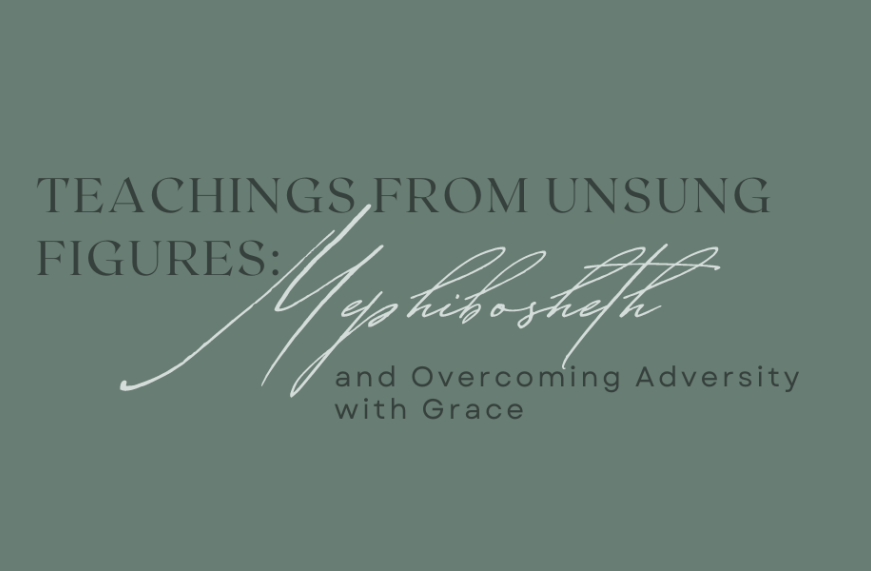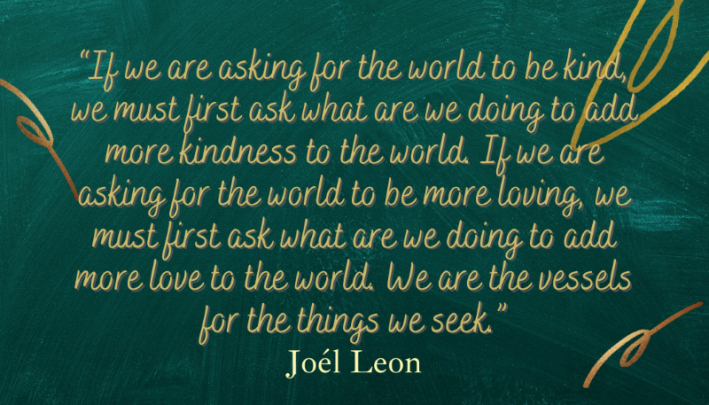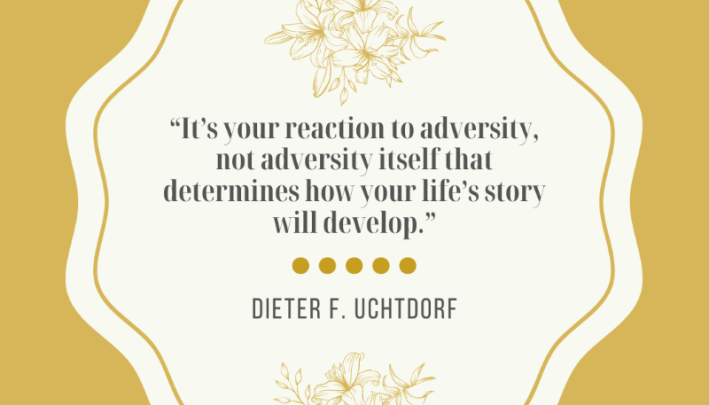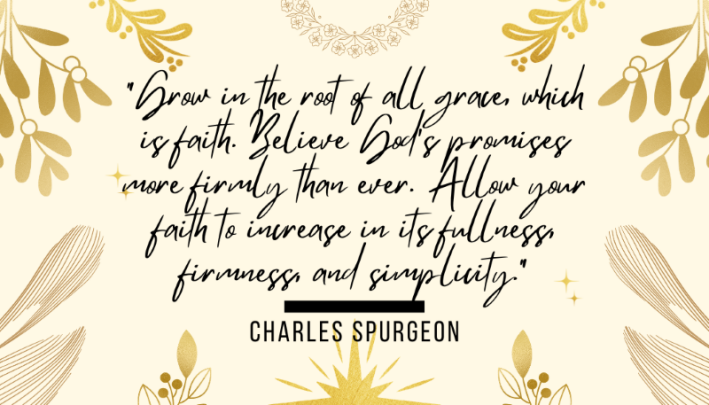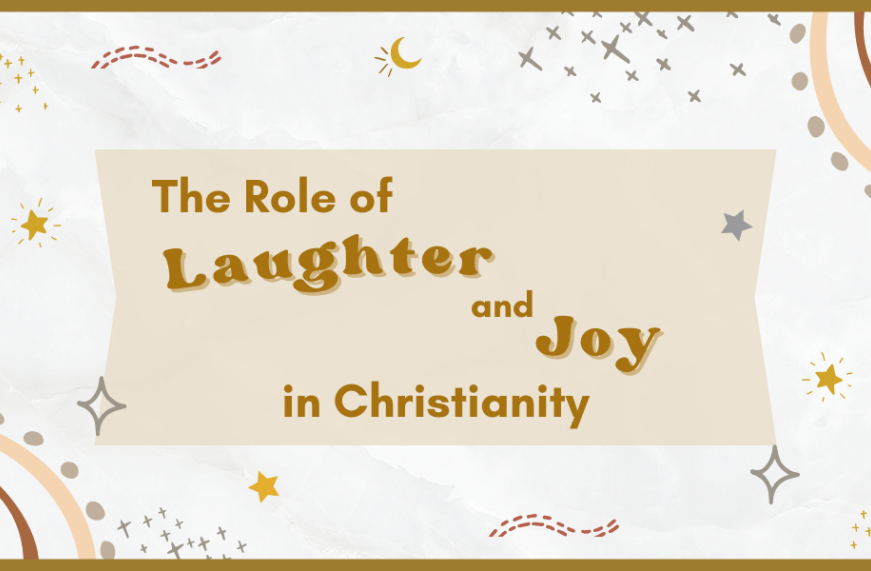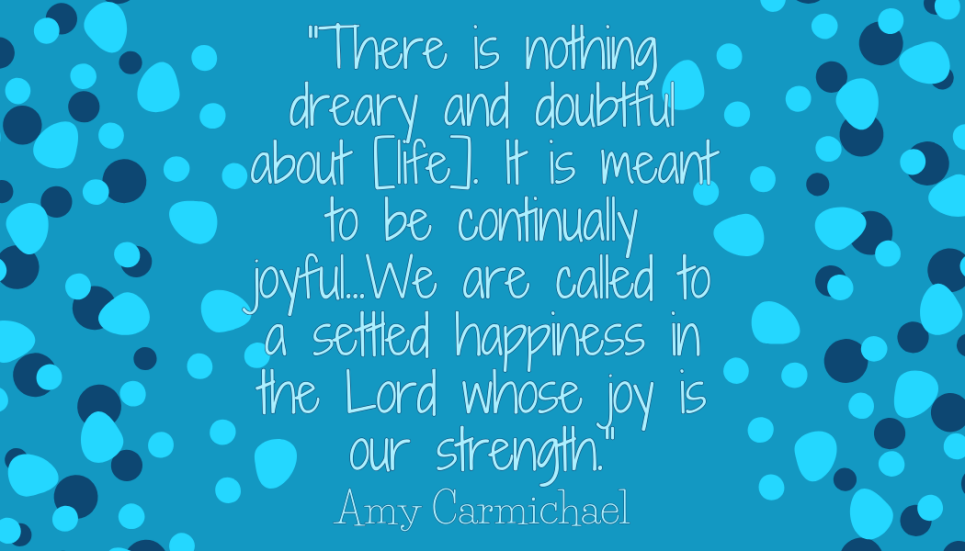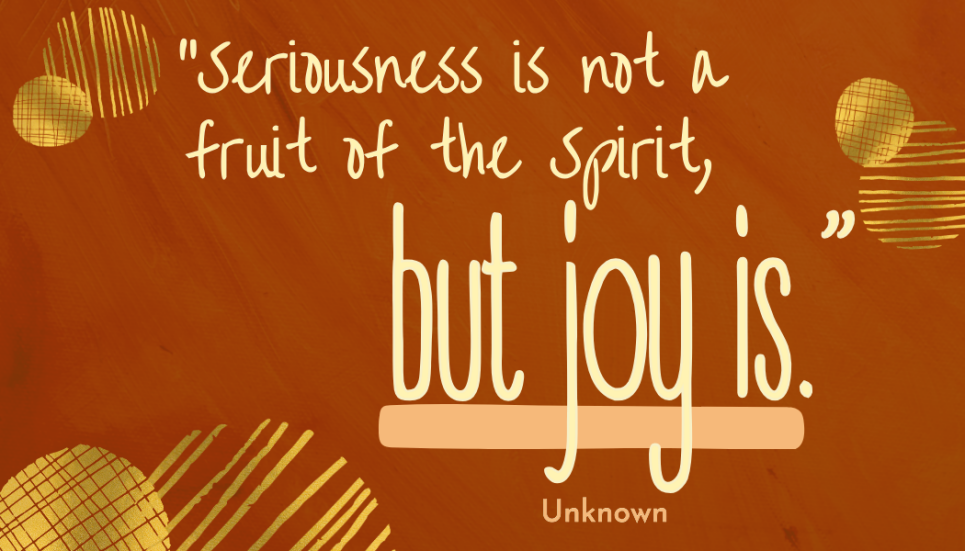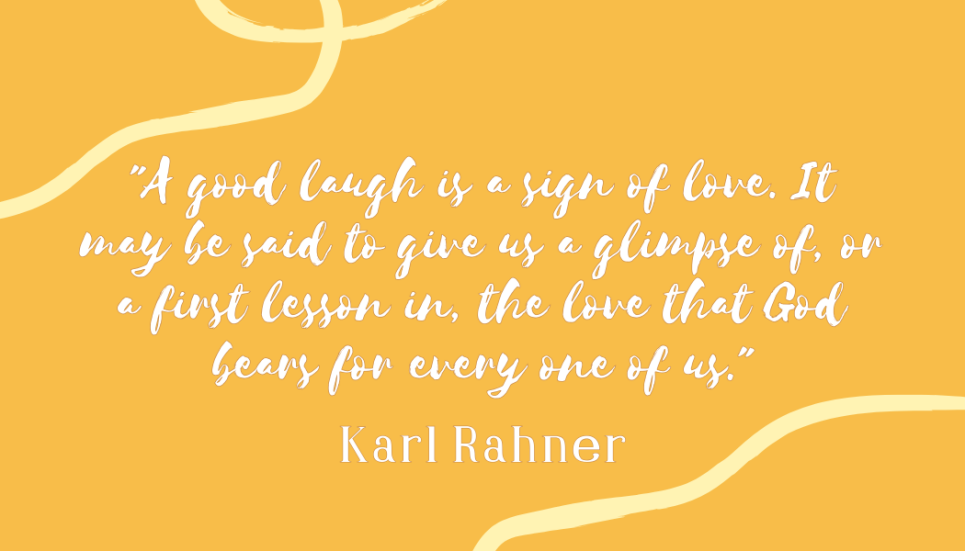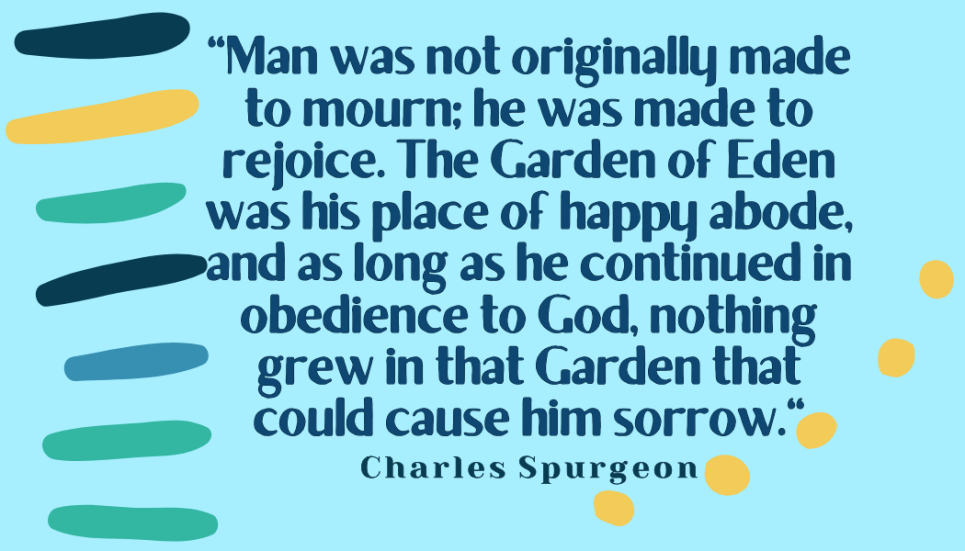Building on last week's post, today we are sharing instances in the Bible that showcase the range of humorous tones (from subtle humor to more direct forms of wit and irony) that contribute to the richness of the narrative.
Sarah’s Laughter (Genesis 17:17-19, 18:9-15; Genesis 21:1-7): In Genesis 18, Sarah laughs at the promise of bearing a child in her old age, emphasizing the skepticism surrounding God’s announcement. Fast forward to Genesis 21, and her laughter turns into joy as Sarah marvels at the fulfillment of the promise. The meaning behind Isaac’s name, “he laughs” adds one last playful twist to the joy Sarah and Abraham experienced.
Then the Lord said to Abraham, “Why did Sarah laugh and say, ‘Will I really have a child, now that I am old?’ Is anything too hard for the Lord? I will return to you at the appointed time next year, and Sarah will have a son.”(Genesis 18:13-14)
Sarah said, “God has brought me laughter, and everyone who hears about this will laugh with me.” (Genesis 21:6)
Elijah and the Prophets of Baal (1 Kings 18:20-40): Hilarity weaves its way into the dramatic confrontation between Elijah and the prophets of Baal. Elijah, a staunch believer in the one true God, infuses facetious witticisms into his challenge to the prophets of Baal as they attempt to call down fire from their gods. His taunts, laced with humor, amplify the stark contrast between the true God's power and the futile efforts of the prophets of Baal.
“Then you call on the name of your god, and I will call on the name of the Lord. The god who answers by fire—he is God.” Then all the people said, “What you say is good.” Elijah said to the prophets of Baal, “Choose one of the bulls and prepare it first, since there are so many of you. Call on the name of your god, but do not light the fire.” So they took the bull given them and prepared it. Then they called on the name of Baal from morning till noon. “Baal, answer us!” they shouted. But there was no response; no one answered. And they danced around the altar they had made. At noon Elijah began to taunt them. “Shout louder!” he said. “Surely he is a god! Perhaps he is deep in thought, or busy, or traveling. Maybe he is sleeping and must be awakened.” (1 Kings 18:24-27)
Elisha and the Bears (2 Kings 2:23-25): As Elisha encounters a group of teasing boys, he quickly becomes the target of their jests; the boys taunting him about his bald head. Elisha calls on God, who responds with quite a fanciful remedy- sending two bears who mauled forty-two of the boys! Although it seems a bit over the top, there is no denying the event is marked with tomfoolery.
From there Elisha went up to Bethel. As he was walking along the road, some boys came out of the town and jeered at him. “Get out of here, baldy!” they said. “Get out of here, baldy!” He turned around, looked at them and called down a curse on them in the name of the Lord. Then two bears came out of the woods and mauled forty-two of the boys. (2 Kings 2:23-24)
David Dances Before the Ark (2 Samuel 6:1-23): As David dances exuberantly before the Ark of the Covenant, his genuine and unrestrained celebration becomes a spectacle full of vibrant spirituality.
Wearing a linen ephod, David was dancing before the Lord with all his might, while he and all Israel were bringing up the ark of the Lord with shouts and the sound of trumpets. (2 Samuel 6:14-15)
Zacharias and Elizabeth's Son (Luke 1:5-80): Highlighted in verse 62, subtle amusement arises as Zacharias navigates communication challenges after God rendered him speechless. Zacharias, unable to speak but perfectly capable of hearing, becomes the unwitting recipient of sign language, a gesture typically used for the deaf.
Then they made signs to his father, to find out what he would like to name the child. (Luke 1:62)
Jesus and the Temple Tax (Matthew 17:24-27): The surprising discovery of coins in the fish's mouth adds a whimsical touch to Jesus' miraculous provision, illustrating His ability to turn an ordinary situation into a rib-tickling event.
“But so that we may not cause offense, go to the lake and throw out your line. Take the first fish you catch; open its mouth and you will find a four-drachma coin. Take it and give it to them for my tax and yours.” (Matthew 17:27)
Paul's Use of Sarcasm (2 Corinthians 11:1-33): By wielding sarcasm as a tool, Paul addresses serious issues with a touch of banter, engaging his audience in a way that both challenges and amuses, revealing his rhetorical prowess and the versatile nature of his approach to conveying spiritual truths.
I repeat: Let no one take me for a fool. But if you do, then tolerate me just as you would a fool, so that I may do a little boasting. In this self-confident boasting I am not talking as the Lord would, but as a fool. Since many are boasting in the way the world does, I too will boast. You gladly put up with fools since you are so wise! In fact, you even put up with anyone who enslaves you or exploits you or takes advantage of you or puts on airs or slaps you in the face. (2 Corinthians 16-20)
Jesus' Hyperbolic Teaching (Matthew 23:13-39): The scathing rebuke delivered by Jesus is laden with biting sarcasm that exposes the hypocrisy of the religious elite. The candid gibes provide insight into the different approaches Jesus employed when addressing critical issues.
“You blind guides! You strain out a gnat but swallow a camel. Woe to you, teachers of the law and Pharisees, you hypocrites! You clean the outside of the cup and dish, but inside they are full of greed and self-indulgence.” (Matthew 23:24-25)
Peter's Escape from Prison (Acts 12:5-17): Capturing the excited awe after Peter’s miraculous escape, a servant goes to answer the door, after hearing Peter’s voice. Reeling, she ran off to inform everyone that Peter was at the door; leaving Peter, presumably dumbfounded and nervous, outside. The moment playfully depicts the giddy disbelief that can accompany answered prayers.
Peter knocked at the outer entrance, and a servant named Rhoda came to answer the door. When she recognized Peter’s voice, she was so overjoyed she ran back without opening it and exclaimed, “Peter is at the door!” (Acts 12:13-14)
Jesus Teasing the Woman at the Well (John 4:1-42): During the conversation with the Samaritan woman at the well, Jesus jovially teases her about her marital history. The interaction conveys Jesus’ approachability, understanding, and ability to connect on a personal level.
He told her, “Go, call your husband and come back.”
“I have no husband,” she replied.
Jesus said to her, “You are right when you say you have no husband. The fact is, you have had five husbands, and the man you now have is not your husband. What you have just said is quite true.” (John 4:16-18)
Paul's Wordplay (Galatians 5:11-12): Paul deploys a pointed and somewhat sharp expression to emphasize his frustration with those who were propagating a distorted version of the gospel. His wisecracks expose Peter's impassioned commitment to preserving the purity of the Christian message. While stern in tone, his commentary underscores the gravity of the situation with a touch of well-placed humor.
Brothers and sisters, if I am still preaching circumcision, why am I still being persecuted? In that case the offense of the cross has been abolished. As for those agitators, I wish they would go the whole way and emasculate themselves! (Galatians 5:11-12)
Paul and Barnabas Mistaken for Gods (Acts 14:8-20): While doing missionary work, the residents of Lystra confused Paul and Barnabas for Greek gods. This cultural misunderstanding injects a lighthearted element into their travels, revealing a more jovial side of Paul's missionary experiences. Rather than rebuffing the crowd's misguided perception with sternness, Paul and Barnabas seize the opportunity to redirect the people's worship toward the true God.
When the crowd saw what Paul had done, they shouted in the Lycaonian language, “The gods have come down to us in human form!” Barnabas they called Zeus, and Paul they called Hermes because he was the chief speaker. The priest of Zeus, whose temple was just outside the city, brought bulls and wreaths to the city gates because he and the crowd wanted to offer sacrifices to them. (Acts 14:11-13)
Balaam and the Talking Donkey (Numbers 22:21-35): Instead of employing conventional means of divine intervention, God uses an unconventional and amusing method to convey a crucial message by utilizing a donkey to reprimand. Balaam's interaction with his seemingly vocal donkey induces a moment of surprise, perhaps even amusement, as he grapples with this unexpected phenomenon.
When the donkey saw the angel of the Lord, it lay down under Balaam, and he was angry and beat it with his staff. Then the Lord opened the donkey’s mouth, and it said to Balaam, “What have I done to you to make you beat me these three times?” Balaam answered the donkey, “You have made a fool of me! If only I had a sword in my hand, I would kill you right now.” The donkey said to Balaam, “Am I not your own donkey, which you have always ridden, to this day? Have I been in the habit of doing this to you?”
“No,” he said. (Numbers 22:27-30)
Zacchaeus Climbing a Tree (Luke 19:1-10): The visual of Zacchaeus, a respected figure of authority, perching in a tree to overcome his height challenge, creates a playful setting. His unconventional technique aptly expresses his eager gaiety in knowing he would see Jesus.
He wanted to see who Jesus was, but because he was short he could not see over the crowd. So he ran ahead and climbed a sycamore-fig tree to see him, since Jesus was coming that way. When Jesus reached the spot, he looked up and said to him, “Zacchaeus, come down immediately. I must stay at your house today.” (Luke 19:3-5)
Jesus and the Fig Tree (Matthew 21:18-22): In Matthew 21, Jesus was hungry and anticipating a fig, only to find the tree devoid of fruit. Undoubtedly, Jesus could have produced a fig for Himself- but in a totally relatable fashion, Jesus’ humanity had shown through- He was just too hangry! He expressed His disappointment by cursing the tree. There is a deeper lesson about spiritual fruitfulness, but the scene invites a smile as we resonate with the amusing interplay between Jesus' physical hunger and his response to the unfruitful tree.
Early in the morning, as Jesus was on his way back to the city, he was hungry. Seeing a fig tree by the road, he went up to it but found nothing on it except leaves. Then he said to it, “May you never bear fruit again!” Immediately the tree withered. (Matthew 21:18-19)
Nicodemus' Confusion (John 3:1-21): Levity impregnates a conversation between Jesus and the Pharisee, Nicodemus. Struggling to understand the metaphor of ‘born again,’ Nicodemus can’t grasp just how someone can re-enter their mother's womb. Jesus patiently turns the exchange into a teaching moment, gently blending amusement with the deeper exploration of spiritual rebirth.
Jesus replied, “Very truly I tell you, no one can see the kingdom of God unless they are born again.”
“How can someone be born when they are old?” Nicodemus asked. “Surely they cannot enter a second time into their mother’s womb to be born!” (John 3:3-4)
A Time for Everything
As illustrated throughout the stories we’ve shared, humor and laughter encompass diverse forms within the Bible; surfacing in moments of doubt, joy, instruction, and everything in between. The intricate show of emotion recounted in Scripture harmonizes beautifully with Ecclesiastes, confirming there is a time for everything.
There is a time for everything, and a season for every activity under the heavens: a time to be born and a time to die, a time to plant and a time to uproot, a time to kill and a time to heal, a time to tear down and a time to build, a time to weep and a time to laugh, a time to mourn and a time to dance, a time to scatter stones and a time to gather them, a time to embrace and a time to refrain from embracing, a time to search and a time to give up, a time to keep and a time to throw away, a time to tear and a time to mend, a time to be silent and a time to speak, a time to love and a time to hate, a time for war and a time for peace. (Ecclesiastes 3:1-8)
-Torrance Church of Christ
Speaking of a time for everything….Feeling like it’s time for some jokes? Click here!
